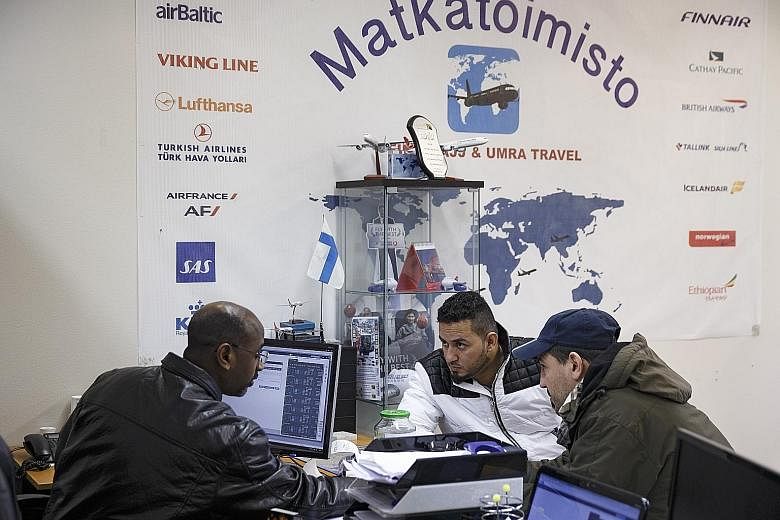BAGHDAD • Last year, drawn by news reports of easy passage to Europe through Turkey, tens of thousands of Iraqis joined Syrians, Africans and Afghans in a great migrant wave to the continent. Now, thousands of Iraqis are coming home.
Many say they arrived in Europe with unrealistic expectations. Some also say the warm reception they received from Europeans last summer gave way to suspicion after the Paris terrorist attacks last November carried out by the Islamic State in Iraq and Syria (ISIS).
Many Iraqis, however, are staying on in Europe, especially those who were displaced from lands controlled by ISIS. Others are still risking everything to cross the seas to get to the continent. Just last week, the bodies of five Iraqis who drowned in the Aegean Sea were returned to their home country.
The returnees largely reflect another segment of migration: those who left Baghdad for economic reasons, or merely out of curiosity after seeing so many reports of migrants arriving joyously on the shores of Europe.
Last summer, Facebook was filled with posts about making the trip. Now, some Iraqis in Europe are turning to social media to warn their countrymen away. One recent video shows an Iraqi man complaining of the food in Europe and saying: "I'm just waiting for my flight to Baghdad, and I will be back soon. I would advise everyone not to take the risk and come to Europe."
The International Organisation for Migration said it helped almost 3,500 Iraqis return home last year - just a portion of the overall number returning, as many do so with the assistance of local governments or Iraqi embassies in European countries. The Iraqi government recently sent a delegation to Europe to organise the return of its citizens, and it may send chartered aircraft to bring them back.
"Some want to return for personal reasons, others because their applications for residency have been refused or because of the expensive living conditions. We are not able to count them all because a lot return on their own expense and not that of the ministry," said Iraq's Ministry of Migration and Displacement spokesman Satar Nawrooz.
Many of those returning to Iraq are broke, having sold most of their belongings to pay smugglers to get them to Europe.
"Our dream was to leave the country," said Mr Haitham Abdulatif, 48, who sold his Mercedes car for US$8,000 (S$11,200) to pay for the trip to Belgium with his 10-year-old daughter.
"I was expecting them to give me a house, a good job, so I could have a better life. This is what I was dreaming about," he said. The reality, he said, was much different. He quickly spent the US$8,000, mostly paying smugglers, and found himself almost broke.
He hated the food, and realised that obtaining residency and finding a decent job would take months.
Many other Iraqis, too, did not count on the difficulty of landing in a liberal, European society from a conservative Arab culture. "I felt like I couldn't live in an open society," said Mr Aqeed Hassan, 26, who plays the clarinet, and is back in Baghdad after going to Finland. "My wife has her head covered, and I didn't feel like they liked Arabs."
After the attacks in Paris, many Europeans also began to regard the migrants as a security threat.
"They turned their faces away from us," Mr Mohammed al-Jaibry, who lived in Finland, said. "I felt like the Finnish people really didn't want us any more."
Some Iraqis who returned have fond memories of their brush with European culture, and few regrets about at least trying a new life.
"It was beautiful. Even the people's morals - they all respected us," Mr Abdulatif said, adding that he did not regret going. "It was 99.9 per cent different from Baghdad. People here all talk in a sectarian way: He's Sunni, he's Shi'ite, he's Kurdish."
NEW YORK TIMES

